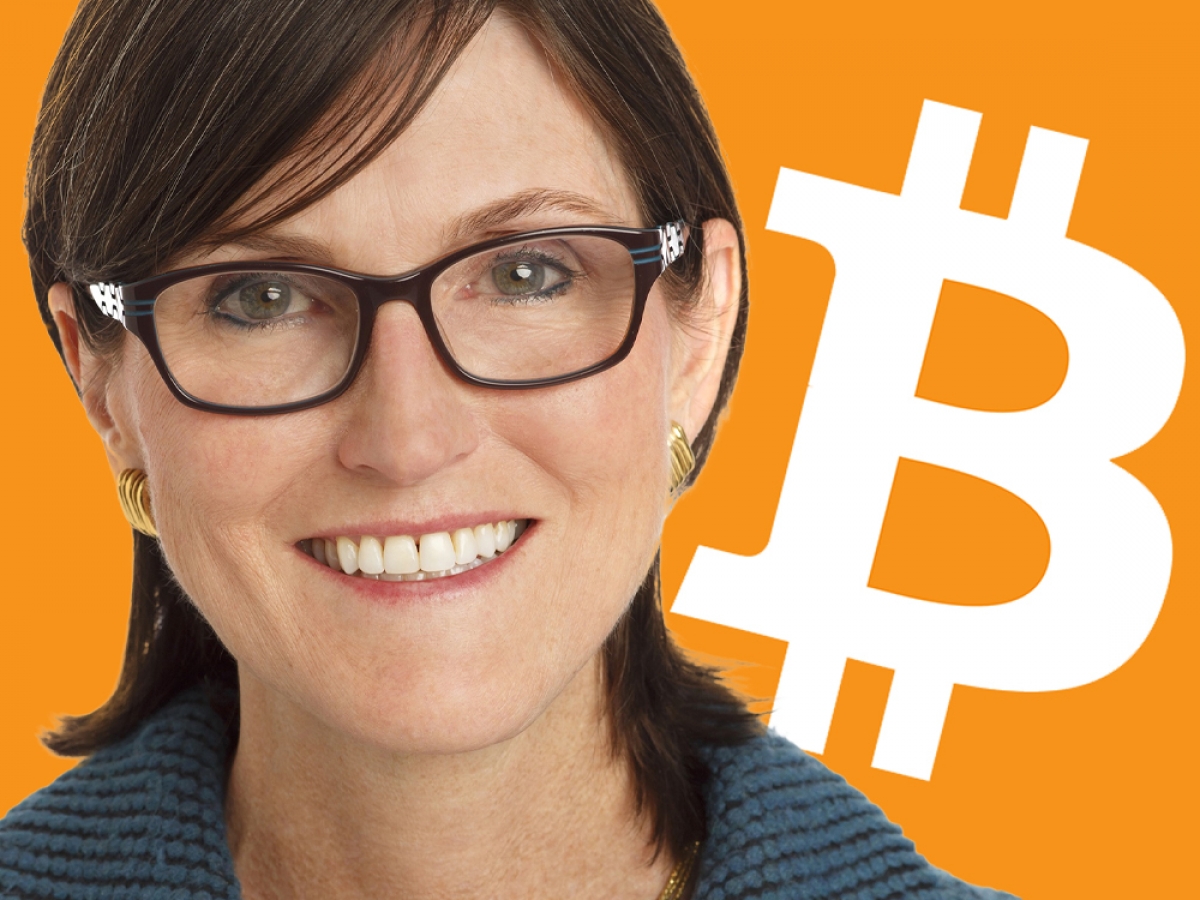Cathie Wood Stands Firm on Bold $1.5M Bitcoin Target by 2030
10.06.2025 10:00 1 min. read Alexander Stefanov
While Bitcoin hovers just above $105,000, ARK Invest’s Cathie Wood isn’t backing down from her long-held view that the asset could hit $1.5 million within five years.
In a recent discussion, she pointed to surging institutional interest, limited supply, and Bitcoin’s role as a decentralized monetary network as key drivers of potential exponential growth.
Wood argues that Bitcoin’s scarcity — combined with trillions in capital managed by institutions now entering through ETFs — could trigger a massive supply-demand imbalance. She sees Bitcoin not merely as a store of value, but as the foundation of a new financial system, reinforced by its unbroken network security.
Despite short-term volatility, she believes long-term value creation is inevitable. And while some, like MicroStrategy’s Michael Saylor, envision Bitcoin reaching even higher figures over the next two decades, other analysts offer more conservative forecasts, ranging between $150,000 and $500,000 by 2030.
Still, the consensus remains optimistic: Bitcoin is transitioning from speculation to a serious institutional-grade asset. Whether it hits seven figures or not, it’s increasingly viewed as a core holding in the digital age — one that continues to attract believers like Wood, who see it as more than just a bet, but a revolution in motion.
-
1
Bitcoin Shouldn’t Be Taxed, Says Fund Manager
07.07.2025 9:00 2 min. read -
2
Bitcoin Enters new Discovery Phase as Profit-Taking Metrics rise and outflows dominate
06.07.2025 8:00 2 min. read -
3
Altcoins Gain Momentum as Bitcoin Dominance Drops to 61.6%
17.07.2025 15:30 2 min. read -
4
U.S. Lawmakers Target El Salvador With Crypto Sanctions Plan
10.07.2025 15:00 2 min. read -
5
Strategy’s $60 Billion Bitcoin Portfolio Faces Mounting Risks, CryptoQuant Warns
10.07.2025 16:36 3 min. read
Elon Musk’s SpaceX Moves $150M in Bitcoin
SpaceX has moved 1,308 BTC—worth roughly $150 million—to a new wallet address, marking its first on-chain activity in more than three years.
Here’s When the Bitcoin Cycle May Peak, Based on Past bull Markets
According to a new chart shared by Bitcoin Magazine Pro, the current Bitcoin market cycle may be entering its final stretch—with fewer than 100 days remaining before a potential market top.
Bitcoin Price Prediction: $130K in Sight After ‘Crypto Week’ Boost
Bitcoin (BTC) is once again hovering near its all-time high today as trading volumes have jumped by 13% in the past 24 hours upon breaking the $119,000 barrier, favoring a bullish Bitcoin price prediction. The top crypto has booked gains of 16% in the past 30 days and reached a new record at $123,091 earlier […]
Support Test or Breakout Ahead? Bitcoin Hovers at Key Decision Zone
Bitcoin is consolidating around $119,000 after last week’s all-time high above $123,000.
-
1
Bitcoin Shouldn’t Be Taxed, Says Fund Manager
07.07.2025 9:00 2 min. read -
2
Bitcoin Enters new Discovery Phase as Profit-Taking Metrics rise and outflows dominate
06.07.2025 8:00 2 min. read -
3
Altcoins Gain Momentum as Bitcoin Dominance Drops to 61.6%
17.07.2025 15:30 2 min. read -
4
U.S. Lawmakers Target El Salvador With Crypto Sanctions Plan
10.07.2025 15:00 2 min. read -
5
Strategy’s $60 Billion Bitcoin Portfolio Faces Mounting Risks, CryptoQuant Warns
10.07.2025 16:36 3 min. read


